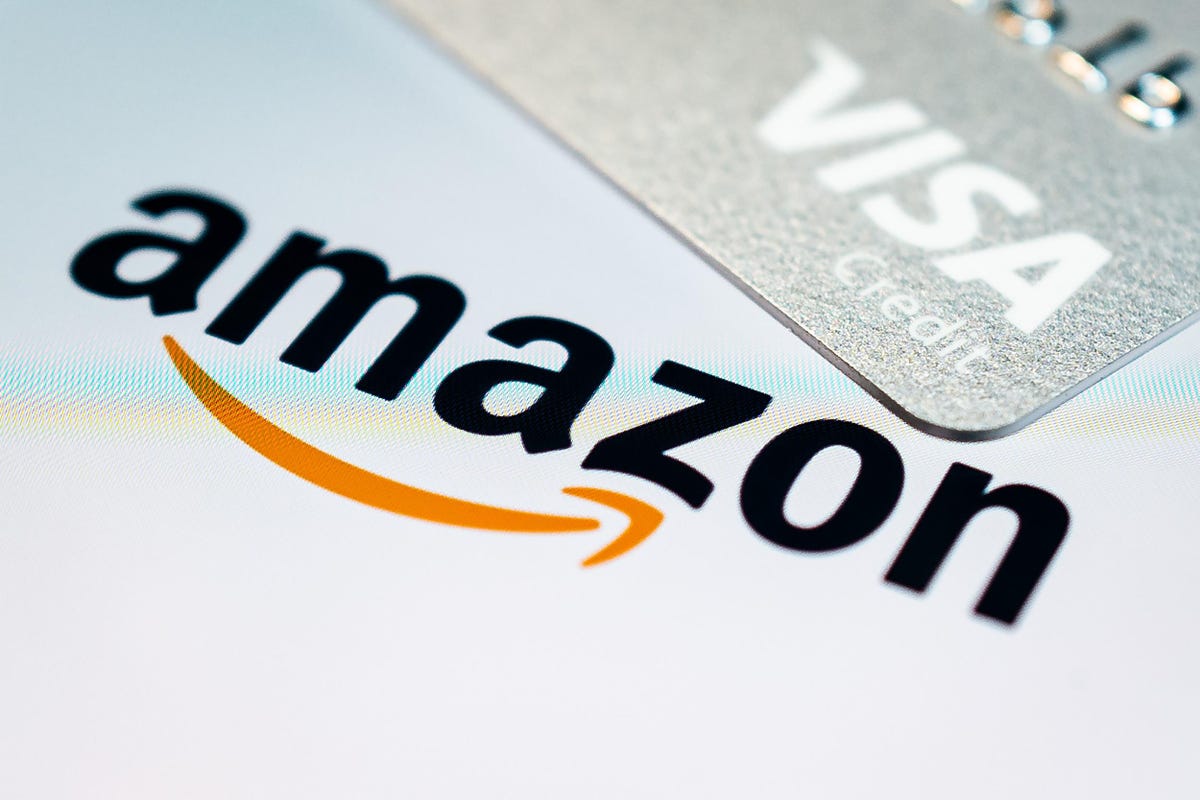
Amazon and Visa have entered into a very public dispute about fees. (Photo illustration by Leon … [+]
Online retail giant Amazon is to stop accepting Visa credit cards issued in the U.K. from 19 January in an extraordinary face-off over transaction fees.
In announcing the move yesterday, Amazon said that the decision had been prompted by high credit card transaction fees but said that Visa debit cards would still be accepted. For its part, Visa responded by saying that it was “very disappointed that Amazon is threatening to restrict consumer choice in the future”.
Visa’s share price slumped nearly 7% yesterday, though they have recovered a little of their lost ground in trading so far today.
And the spat could spread to the U.S., where Amazon is reviewing its co-branded credit card and talking to other potential partners, according to reports from the BBC.
In the meantime, Amazon is offering gift card sweeteners to affected customers to apologize for the inconvenience, offering $27 for Prime customers to switch from using Visa to an alternative payment method, and $13.50 for other customers, if they have a Visa card as their only or default payment method on their account.
The post-Christmas deadline date does give both sides room for negotiation, but the public nature of the dispute and the scale of both retailer and payment provider makes this a clash of the titans.
In announcing the move, Amazon stated: “The cost of accepting card payments continues to be an obstacle for businesses striving to provide the best prices for customers.”
And the online retail giant pointed to the myriad technological advances and said that, as a result, costs should be going down over time but instead they “continue to stay high or even rise”.
MORE FOR YOU
Visa, Amazon And Fees
Visa said that it had “a long-standing relationship with Amazon” and that it was trying to resolve the situation so customers would be able to continue using Visa credit cards with Amazon U.K., although both parties have so far declined to comment on the actual fees charged per transaction.
It comes at a time when payments fees are in the spotlight. Both Visa and its global rival Mastercard have increased the interchange fee on cross-border transactions between businesses in the U.K. and the European Union, following the U.K’s decision to withdraw from the EU.
Amazon is also rumored to be considering dropping Visa as a partner for its U.S. co-branded credit card and is in talks with payment networks, including Mastercard, American Express and Visa, as part of what it calls a “standard process”.
Who Has the Clout?
While many small businesses regularly complain about high transaction fees for business, few if any have the financial muscle to take on the corporate credit giants. That is not the case with Amazon, which has the global scale and the popularity to take on Visa, claiming its fees are excessive, and an obstacle to low prices for consumers.
Amazon has raised the issue just as it prepares for a surge in Holiday spending. (Photo by Matthew … [+]
And the timing is significant. Customers increasing their use of Amazon for the Holiday season shopping spree might well feel additionally compelled to change their payment methods because of the convenience of Amazon.
Countering that argument, Visa says that its fees are competitive and have a minimal impact on prices, claiming instead that the move will simply restrict consumer choice.
Rival American Express is also not accepted by many U.K. retailers, which will likely push many customers towards Mastercard.
Last October, the British Retail Consortium (BRC) accused Visa and Mastercard of charging excessive fees, with the retail trade body organization saying that they had doubled in the past two years and warning that retailers would be forced to pass on costs to consumers.
This month both Visa and Mastercard increased their quoted fees for “card-not-present” payments on credit cards to merchants in the EU after the removal of caps post-Brexit. The BRC said companies faced an estimated $202 million increase in the cost of accepting cross-border card payments, with British retailers shouldering an extra $49 million in fees.




